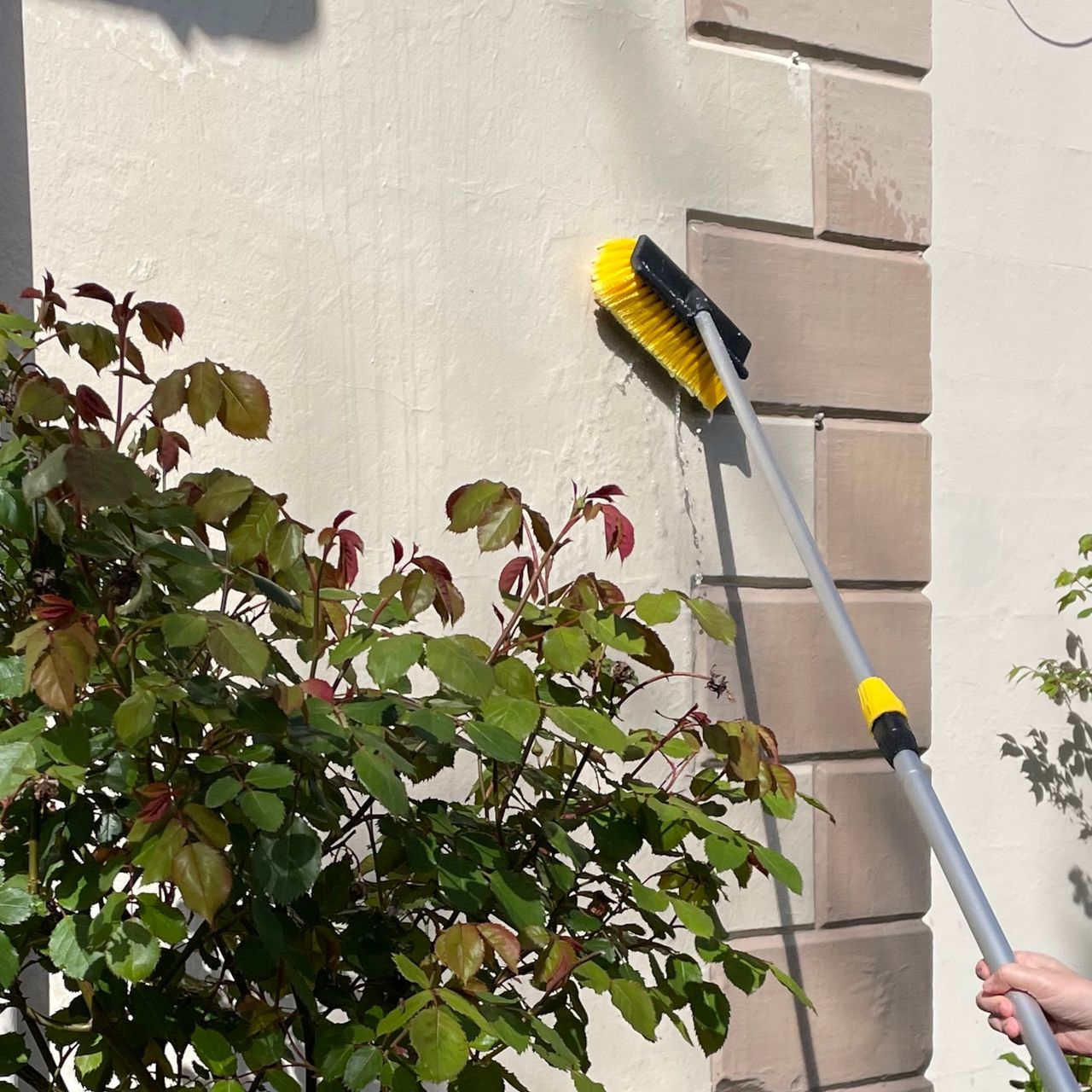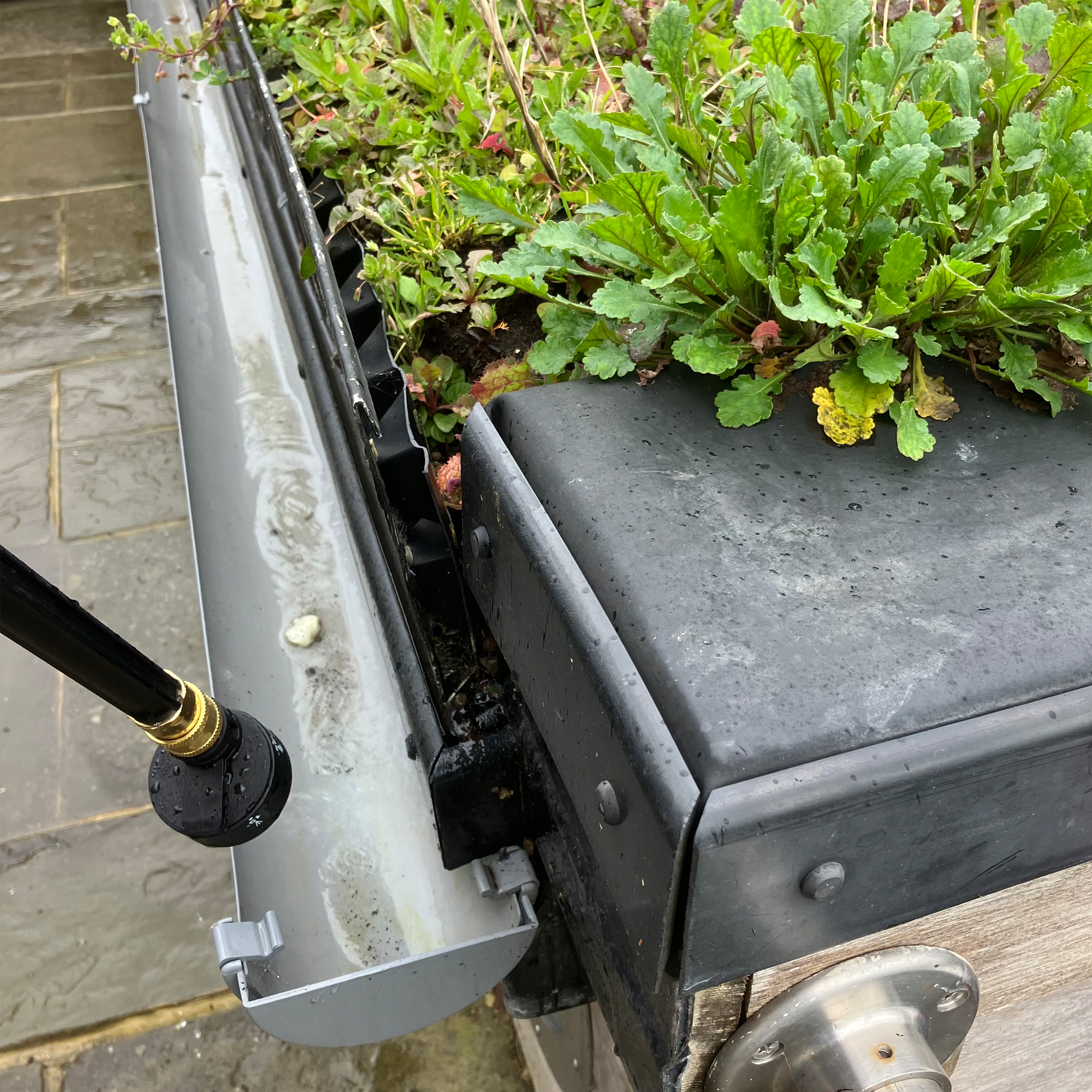
When it comes to cleaning, I'm not afraid to get my hands dirty, especially with kids and pets. I'm constantly clearing up everything from grubby little hands on every surface and muddy paw prints on upholstery to never-ending mystery messes and, well, tiny bums.
But over the years, and especially since renovating our home, I've learned that not all cleaning jobs should be DIY. Some tasks are downright dangerous, while others are just incredibly time-consuming or seem simple but can cause costly damage if you get them slightly wrong.
So while I'll happily steam mop, descale and scrub pretty much anything, these are the three cleaning jobs I won't even attempt to do myself and why you should leave them to the experts too.
1. Exterior render cleaning

It's tempting to think you can freshen up the outside of your home with a pressure washer, but using one on render or cladding can do more harm than good. If too much force is used, it can damage the surface or even strip protective coatings, which is costly to fix. I just don't think it's worth the risk.
'Using the wrong equipment or substances can cause damage to the walls, including water ingress,' explains cleaning expert Joyce French at HomeHow.co.uk. 'For example, some people may be tempted to use a pressure washer to clean the outside of their home, but using it incorrectly may loosen the cladding or render. Or they may use a cleaning solution that is not appropriate for the material on their walls, potentially causing damage or not effectively cleaning the surface.'
Professional cleaners use low-pressure or soft washing systems designed to remove algae, mould and grime without damaging your exterior. It's one of those jobs that's 100% worth outsourcing for peace of mind (and a more polished finish to boot).
2. Black mould removal

Small spots of mould in the bathroom are one thing, but widespread black mould on walls or ceilings is a different story altogether. It's not just that it looks awful, though; mould spores can be harmful to health, especially for anyone with allergies or asthma.
Dr Jonathan Kirby, mould expert at Dryzone explains that if you tackle mould at home yourself, you might be making matters worse. 'Wiping away mould spores spreads them over a wider surface, causing them to return more prolific than ever,' he explains.
'Plus, the damp conditions you create when wiping down the surface risk creating the perfect environment for mould to thrive.'
So, treating it yourself with over-the-counter sprays might seem like a quick fix, but unless the underlying cause is addressed, it's likely to come back. That's why I'd always bring in a specialist to deal with it properly and safely.
3. Roof and gutter cleaning

Climbing up a ladder, while juggling tools and scooping out soggy, decomposing leaves from gutters? No, I'll pass, thanks. Cleaning gutters looks simple but carries serious risk, especially if you're not used to working a long way from the ground. Plus, I'm afraid of heights, so there's no way I'm climbing a ladder, especially at such a great height.
I spoke with Jess Thomas, managing director of Drainage Central, who gave several reasons why cleaning your home's guttering yourself isn't the best idea.
- 'Fall risk - unless you have access to telescopic tools, it's likely that you will need to use a ladder to reach your guttering to clean it. Climbing a ladder can be dangerous if you do not have another person who can hold it steady for you, as it can shake or slide while you are working. Even if you do have another person helping, the ladder can still slide away from the guttering and cause you to lose your balance. It's also not recommended to actually lean the ladder directly against the guttering, as the weight of yourself and the ladder can warp or damage the gutter. In order to properly reach the gutters on certain homes, you may need to potentially go a step further and climb onto the roof, which is arguably even more dangerous, as roof tiles can be slippery from the weather, or you could break them.
- Animals - Guttering can be an appealing place for some animals, such as birds, to make their nests in. The variety of debris that can be found in a gutter can be used by birds to make their nests, and they may become aggressive if they feel you are encroaching on their territory. Additionally, it's illegal to disturb a bird's nest that is in use, which can make things even more difficult.
- Mould - as gutters are wet and often full of debris like leaf litter, they can create the ideal environment for mould growth. When you clean the gutters yourself, you can be exposing yourself to mould spores and inhaling them, which can have harmful health effects.'
Gutters that are left clogged can cause water damage and damp problems, which you should avoid at all costs. However, trying to clear them all by yourself without the right kit or safety gear is asking for trouble. A professional will get it done properly and much quicker. Better than having to deal with a nasty job or worse, risking falling.
So, while something can be cleaned doesn't mean it should be cleaned by you. When a task involves heights, health risks or delicate surfaces, it's probably best to leave it to the experts. Do you clean any of these yourself? Let us know in the comments.



!["[T]he First and Fifth Amendments Require ICE to Provide Information About the Whereabouts of a Detained Person"](https://images.inkl.com/s3/publisher/cover/212/reason-cover.png?w=600)



